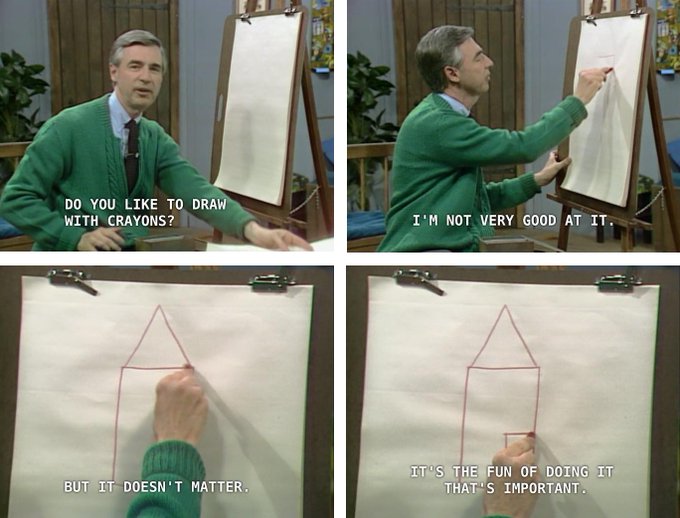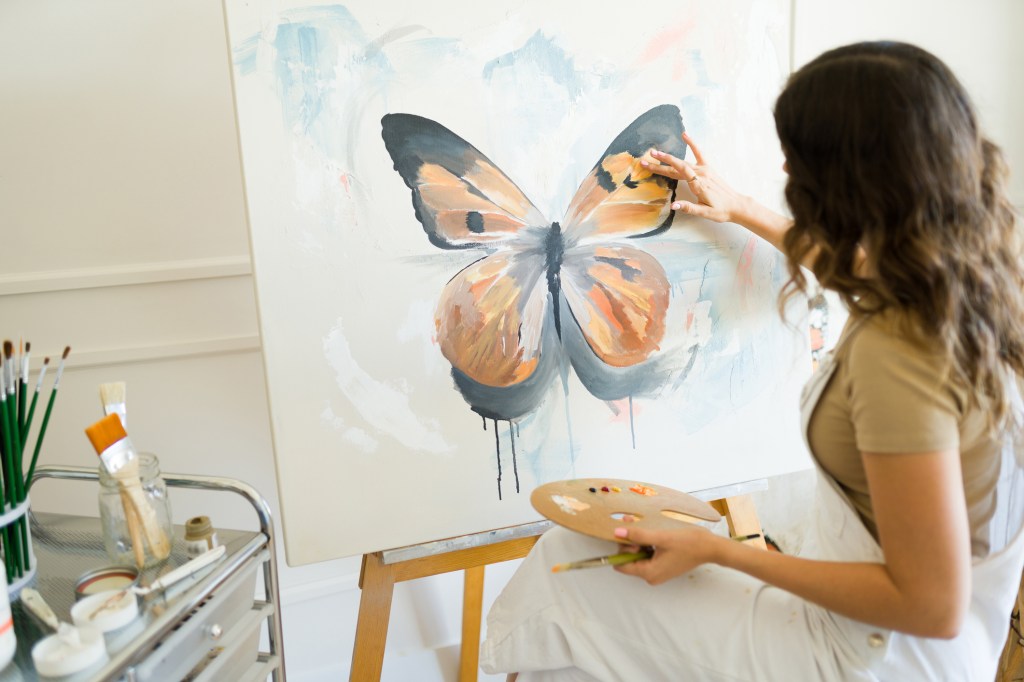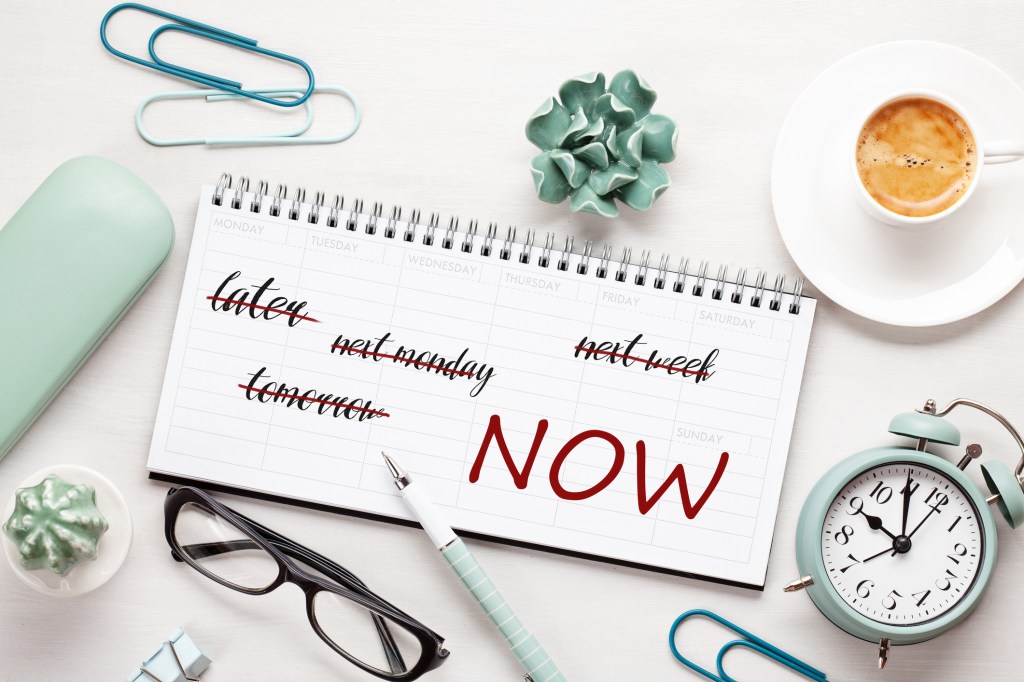I once had a conversation with a wannabe musician where they were bashing modern mainstream music by saying how unoriginal and uninspiring it was, and how if only he could make music, it’d be so much better than the “garbage” that gets massed produced these days.
After ranting and raving about the state of the industry he finally said, “I want to write music that’s original that no one’s ever heard before.”
“Okay,” I said. “Then what have you written so far?”
“Nothing yet,” he replied.
And without a moment’s hesitation, I retorted, “then mission accomplished.”
Sick burn, right? Somebody call the burn unit and get this man some aloe vera!
All joking and arrogance aside, though, this is an unfortunately common conversation I have had with some would be creators. I can’t even consider them as creators because they haven’t created anything yet. I like to call them “preators.” They’re always in the pre-planning stage of creating anything, but never actually put pen to paper or strike a single stroke of paint on their canvas.
All they do is blow hot air about how much better their work would be than the stuff that’s already out there. And even if they do create anything, their output is rather limited and unrefined, and with a little bit of work could actually contend with their imaginary contemporaries and rivals.
But they don’t.
Instead, they choose to cling onto their opinions and spout their “hot takes”—that are really just lukewarm at best—and spend most of their time criticizing established works that have been published, screened, and viewed by the masses. Why? Because it’s a lot easier to say something is bad than it is to actually do something that is better than the things that they disparage.
A true creator would respect the work of others who have put their skills and taste on display, and no matter how bad those displays may be, these preators would at least respect the fact that if there’s even the tiniest of an audience for this work they deem so bad, that it at least resonates with a tiny minority of people.
Whether you know a preator, or are one yourself, today I will discuss what it takes to go from preator to actual creator.
Here are The Three Keys to Going From Preator to Creator:
- Humility
- Courtesy
- Authenticity
The Key of Humility

Now before I get too far into the deep end of criticizing preators, I should touch upon the good interactions I’ve had with creators and my experience with turning preators into creators. Back in 2016, when I was a writing coach, I had the honour and privilege of working with some very bright and talented writers. They had great ideas, but had trouble executing them, and that’s where I came in to assist them in refining their ideas and habits so that they can finally find the confidence to put pen to paper.
Sometimes my fresh new suggestions for their stories were adapted, but most of the time a lot of my suggestions were considered, but my clients themselves came up with even better ideas than me. I was very proud of them for this and took as little credit as possible because ultimately they were the ones doing the work. All I did was provide the space for them to geek out about a project that they were passionate about while also asking just a few questions that would nudge them in the right direction.
How this was possible on both sides was thanks to a whole lot of humility. For them, it took a lot of humility to accept that their work needed some work and looked to me for some guidance. Then on my end, it took a lot of humility to accept that a lot of my suggestions were going to get rejected and sometimes even challenged. While it was gratifying to see my ideas show up in their next chapter, what gratified me even more was seeing them building something even better than what I suggested, and even more importantly, seeing them build something way better than what they started with.
To go from preator to creator is to accept that your work is not gonna start off as absolutely awesome. There are very rare cases where natural talent just allows someone to create a masterpiece from the get go, but in reality, 99% of the time, it takes a lot of hard work and practice to get proficient at any craft. You have to take classes or find some other alternative way to learn things, and with the advent of the Internet it’s even easier to find resources that help in this matter. From Skillshare classes, to free YouTube videos, or even hiring a Creative Consultant like myself, there is absolutely no shame in looking for help.
Returning back to the wannabe musician, he claimed that learning music theory would only stump his creativity and that he wants to break all the rules to make something truly magnificent and original. I’m sure in his mind, in all earnestness, he believed that that is what the current music industry needed. A huge break away from convention and something that’ll catch people off guard.
Well to that, I call BS because you have to know the rules before you can break them, and you don’t just do it for the hell of it. You do it if it helps the music improve. Yes, there are a lot of successful musicians out there that don’t know music theory, but that’s not the point. The point is that they still have to work hard at their craft to be in the position their in, which leads to my next point.
The Key of Courtesy

You gotta have respect for published works, no matter how bad some of them may be. If it’s viewable by the general public, that means a creator actually had the courage to put their skills and taste on display for the world to see. Creating is a very vulnerable thing to do because it can easily scrutinized and misunderstood when you intended something entirely different.
Look at Joel Schumacher’s Batman & Robin film, for God’s sake. The man literally apologized for disappointing some fans with its over the top campiness and not being what people wanted or expected, then admitted that all he wanted to do was make something entertaining. May that man rest in peace because he gave it his best shot and was met with horrible criticism for something he simply wanted to have fun creating. Horrible as that movie was, I was at least entertained by it as a kid and it had an awesome soundtrack. It should not define his career.
It’s super easy to be passionate about a piece of art that just works on several levels. For preators stuck in the pre-creating stage, what you gotta do is be unabashedly proud of what you love and are inspired by, and do what you can to learn why it resonates with you so much. Far too many people think they look cool for criticizing something bad like Batman & Robin or even the Twilight Saga, but that’s just low hanging fruit. You want to be original? Then have the courage to express your passion for something you love because that’s all too rare these days with the advent of clickbait YouTube and Twitter criticisms of the latest film, book, or show.
Once you’re comfortable with having courtesy to acknowledge the creators you love, make that courtesy common by also giving it to the creators you might detest or at the very least think little of. Creating ain’t easy, and if you’re a preator, you might even bash things to hell because you’re actually intimidated by how hard it is to contend with even that.
But instead of seeing as everything and everyone as competition, see them as inspiration for you to do something similar. Similar, but not better. That’s for the audience to decide, not you. Your job is simply to create something and to do so from a place that isn’t bogged down by ego and wanting to prove a point. There are only a handful creators who create out of spite, greed, and malicious intent, but most of them out there are creating things from the final key that will unlock the creators within the preators.
The Key of Authenticity

To get that authentic stamp of approval, a creator must also be authentic in their approach. Their goal should not be fame and fortune. Fame and fortune should be the natural byproducts of their hard work, but not the end goal. A creator’s goal is to create something from an intimate place of authenticity. It sounds a little woo woo right now, so let me elaborate.
We’ve already beaten the dead horse of that wannabe musician from the intro of this post, so let’s talk about someone else who actually does know music and plays it. There were these fellow metalheads I once knew who actually did have some musical talent. One was a drummer and the other one was a saxaphone player. While they were friends with each other and myself, they both had other sets of friends who they intended to make bands with. So as someone who has been in a few bands in the past, I was intrigued to hear what both of these guys would produce.
I was expecting either of them to record a shoddy smartphone video of them jamming with their friends or put something up on Soundcloud for me to hear, but you know what happened instead? Months went by where both of these guys were flat out living the preator stereotype of trash talking musicians who are signed by labels, all the while only talking about being in a band without actually being in one. While these were two different guys with two different sets of friends that could’ve been bandmates, their stories were pretty much the same.
All they did was complain about modern metal and how so many good bands are selling out to make money and become popular. What did these guys do though? They talked endlessly about how they were just talking with their friends about what kind of music they wanted to make. “We want to make something like this band used to make, but better.”
Once again, I asked one of my douchey questions and said, “oh, okay, cool. So have you guys written anything yet?”
And both of their responses were to the effect of, “well we’re just talking about it right now.”
Preators talk the talk.
Creators walk the walk.
The fact that they didn’t even get together to jam and see what their musical chemistry is like was baffling to me. It was just a bunch of arrogant dudes trash talking the established bands out there, claiming what they’ll make will be so much better, but have little to nothing to show for it.
For a preator to become a creator, you need the humility to know that you’re gonna be very amateur at first, and maybe even for a very long time. Then you need the courtesy to respect those who came before you and even seek help from someone to get some mentorship. And lastly, you need to just get started and do something. And do it without the pretense of being amazing or even better than what should simply inspire you to do what you do.
From Preator to Creator

As you begin to actually execute on your ideas, you will find that it’ll be harder and harder to criticize those who came before you. You’ll start to realize that it’s not that easy to create anything of quality or value, let alone anything at all. This is the place where I think creators need to be in in order to create from a good place, rather than one of ego. Because more often than not, ego prevents people from even getting started, and even if they do get started, impatience gets in the way and they begin to believe that all their hard work needs to be rewarded and it needs to be rewarded right now!
But that’s the thing about creativity; not everyone will understand or appreciate what you create at first. You need to be your own number one fan to keep yourself motivated. You can’t rely on the whims of a potential audience or even the encouragement of a mentor. The kind words can be things you prefer, but you gotta be indifferent from the influx or lack of positive reception and just do your thing.
If you take the time to craft these Three Keys to Going from Preator to Creator, I will guarantee you that you will have a whole lot more appreciation for the entire creative process, and if you don’t buckle from the pressure of it, eventually learn to hone in on your own process and maybe actually join the ranks of the greats.




















